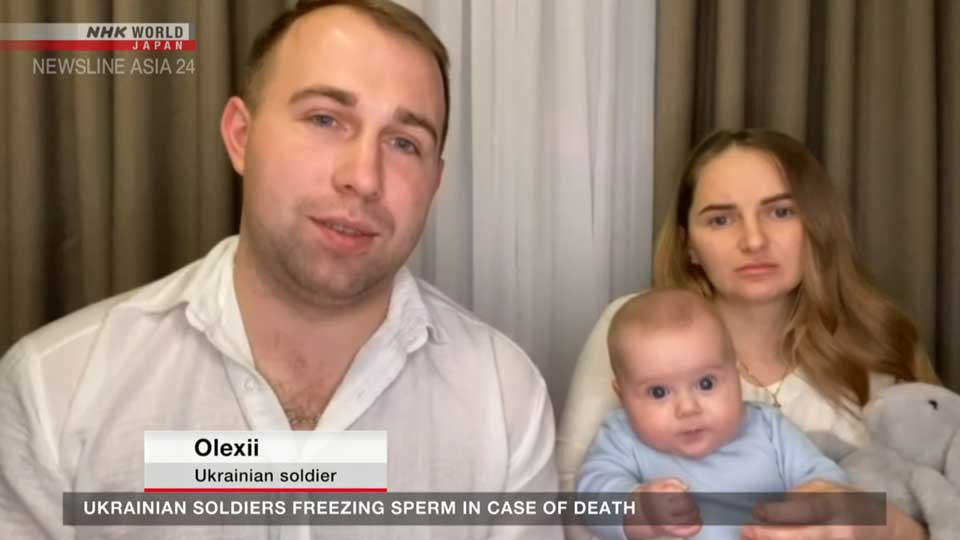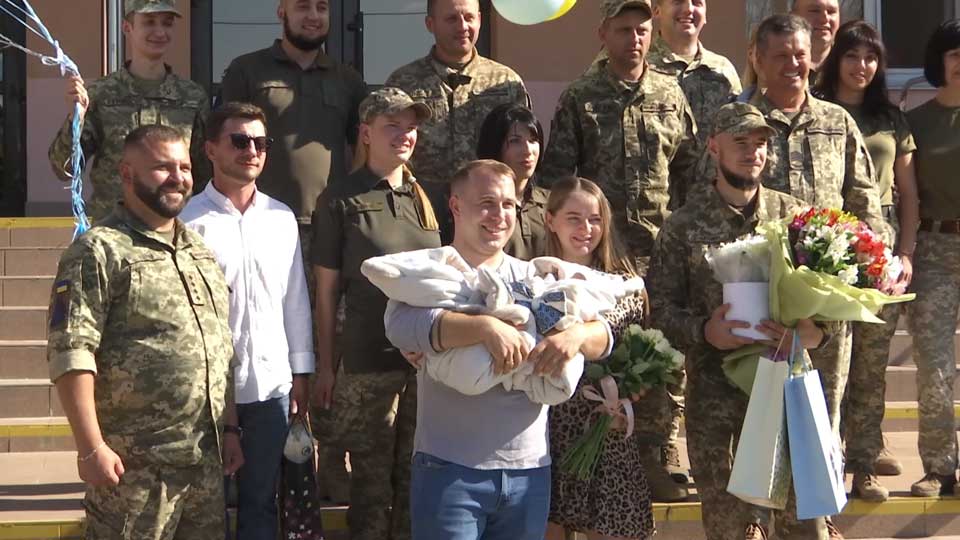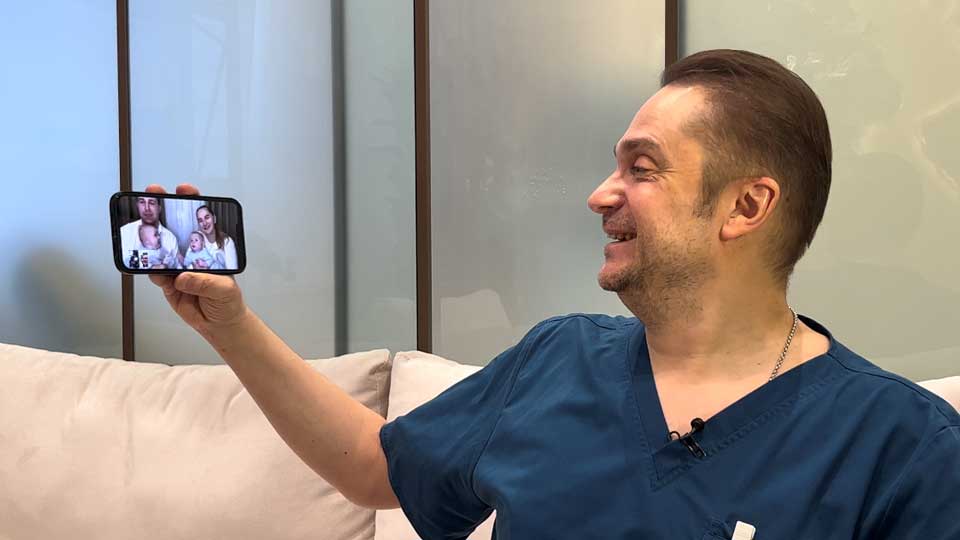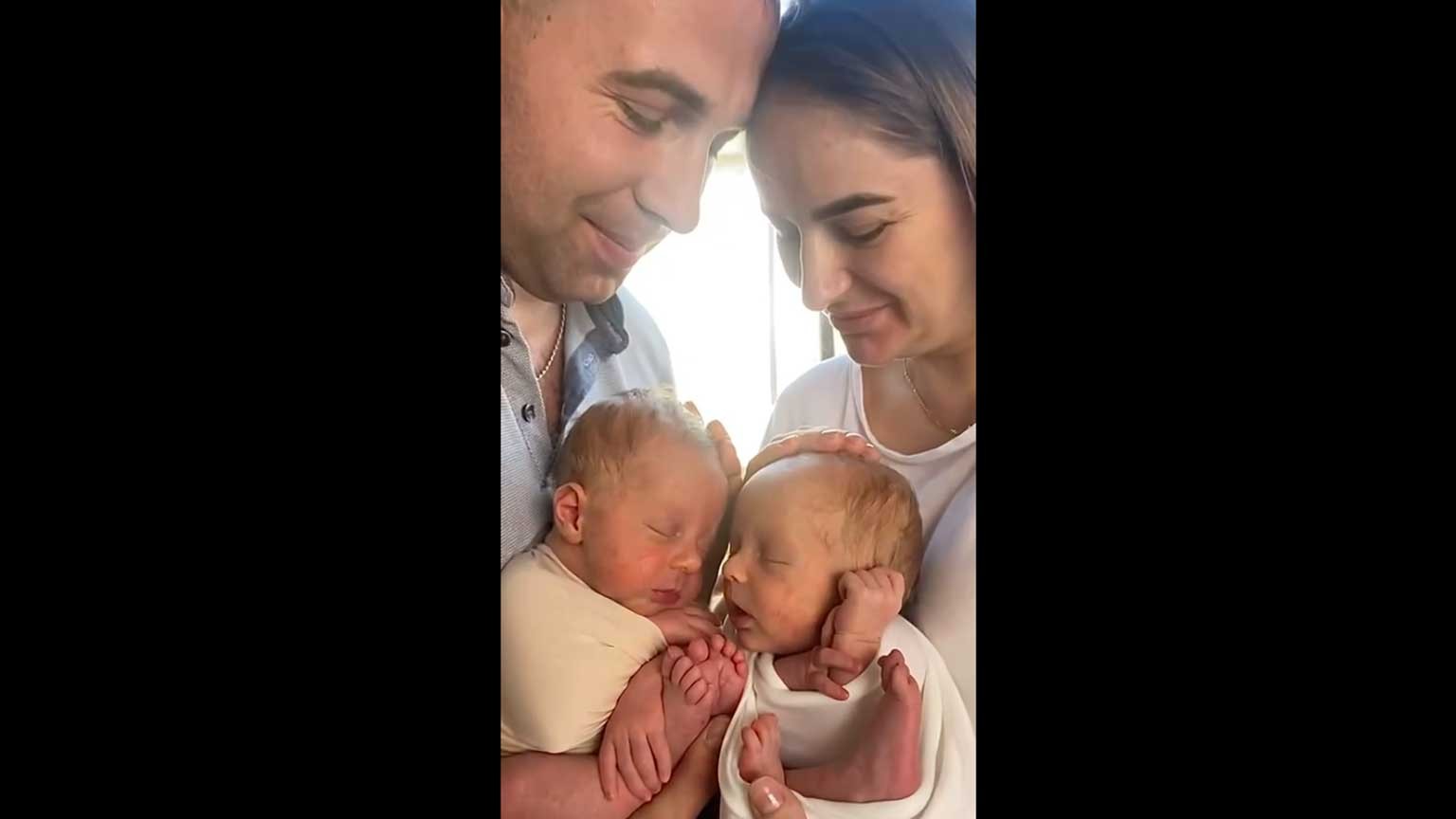Ukraine's birthrate was already in decline when the Russian invasion began, falling from around 1.5 babies per woman in 2012 to 1.2 in 2020. The war is expected to accelerate the downtrend. According to one estimate, Ukraine's population will likely fall from just over 40 million now to below 35 million in 2030.
For soldiers heading off to battle, the decision to freeze their sperm is motivated less by demographic trends, and more by a grim reality: they may not come home, or they may sustain injuries that make it impossible for them to reproduce.
Olexii and his wife Olena had to confront this possibility early in the conflict. "The uncertainty of whether you will be alive tomorrow, or whether you will be alive in five minutes, is very stressful," said Olexii, who was deployed immediately after Russia launched its full-scale invasion in February 2022.
"You want to live, you want to have a family," Olena said, "and you want to leave something behind to carry on. The purpose of life has changed."

The couple discovered that a fertility clinic in Kyiv was offering financial support to people like them, so they immediately applied.
While many soldiers freeze their sperm and keep it in storage during deployment, Olexii decided to use his while he was away fighting.
The process wasn't easy. The couple spent many hours traveling to and from the clinic in Kyiv, providing samples and doing rounds of in vitro fertilization, or IVF. Olena eventually got pregnant, and gave birth to twin boys last fall.
"Now we can hear the sound of kids laughing and crying and shouting around the house," Olexii said. "That's all we wanted, so we have only the most positive, warm feelings."

Other couples have had less success. In order to make the process easier for them, Ukrainian lawmakers passed a bill in November allowing soldiers to freeze their sperm for free. And in February, they changed a law that had forced clinics to dispose of frozen sperm after a soldier died. Clinics can now keep the samples for up to three years after a death. Widows can elect to keep the samples in storage even longer.
Change gives people time to reflect
A recent survey of 300 Ukrainian women who lost their husbands in the war found that nearly 80 percent said they would have tried to have kids if they had frozen sperm. Oksana Dmytriieva, deputy head of a Ukrainian parliamentary committee on public health, said the legislative change would give people more time to reflect before making a decision.
"We have to understand that a woman may not want to use these samples right away," she said. "After her husband has died, she is going through a period of enormous stress.
"Now, though, if a woman wants to, she can use the sample after a year, or after two years. By that time, she may be in a better frame of mind. She may decide she wants a child and she will also understand that she will raise it on her own."
Dmytriieva said the decision to alter the law was not driven by nationalistic motives, but was merely a response to requests from the public.
"Women, mothers, everyone is calling for this, because this is really the demographic situation in our country. These are Ukrainians who should be born," she said. "We see that a lot of people have left the country, our best gene pool is fighting, and so we have to think about what we will have in 10 years. And most importantly, this is voluntary."
Olexander Darii, the doctor who helped Olexii and Olena conceive through the IVF process, said more than a hundred soldiers have come to his clinic. Some have done it of their own volition, while others were encouraged by their families.

"Supporting our soldiers can take on different forms," he said. "It can be providing uniforms and equipment, but it can also be medical care. This is about preserving the gene pool of Ukrainians — with our help."

